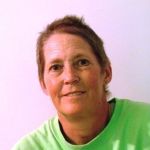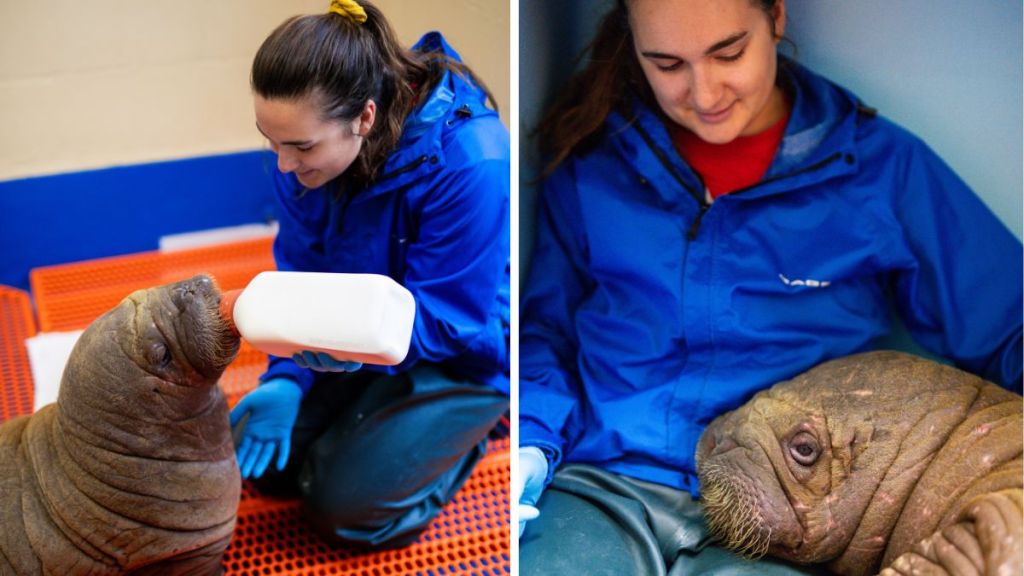Pacific walrus populations are declining. They reside primarily in the Bering, Chukchi, East Siberian, and Laptev Seas. Climate change affects their reliance on patches of sea ice to rest, negatively impacting their migration patterns. When her herd left a female Pacific walrus calf behind during migration, an extraordinary thing happened. Five organizations across the United States began a rescue mission to save the baby walrus.
Videos by InspireMore
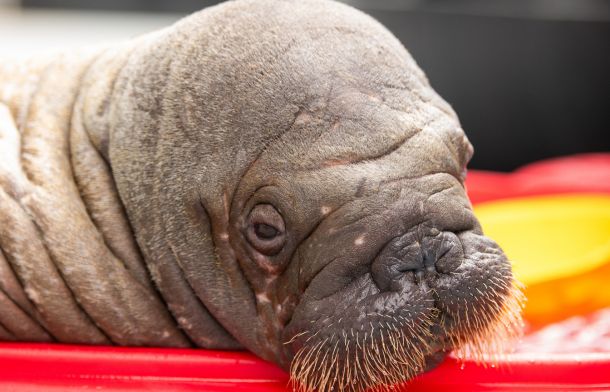
The baby walrus was only a few weeks old when abandoned. She was found on July 22, 2024, near Utqiagvik, Alaska, and transported to the Alaska SeaLife Center (ASLC) in Seward, Alaska. Rehabilitation efforts have begun with permission from the United States Fish and Wildlife Service (USFWS). The cooperative effort includes the Indianapolis Zoo, Point Defiance Zoo & Aquarium, SeaWorld, ASLC, and USFWS assistance.

When the baby walrus was rescued, she was dehydrated, weak, and hungry. A walrus calf spends up to two years with its mother, learning to care for itself. Due to her young age, this calf would have had no chance of survival on her own.
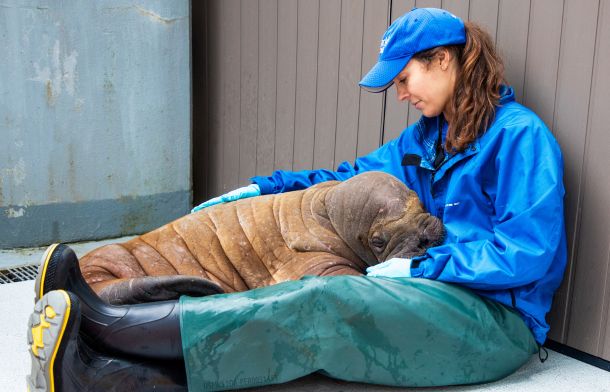
Human surrogates spend shifts around the clock with the baby walrus during rehabilitation. They provide the companionship and touch necessary for the calf to thrive. While this offers a chance of survival, the walrus will not be able to return to the open ocean. Although she continues to improve daily since the rescue, the baby walrus is still in a critical state.
The Importance Of This Baby Walrus Rescue Effort
ASLC is the only authorized rehabilitation center for marine mammals in Alaska. They have rescued 11 Pacific walrus calves in the past. Only four North American zoos house Pacific walruses, so this calf will eventually become an ambassador for the species at one of those locations. Dr. Chris Dold, SeaWorld’s Chief Zoological Officer, said, “Walruses are amazing ambassadors for the Arctic and an inspiration to all of us to be better stewards of the planet we all share.” She is already practicing.
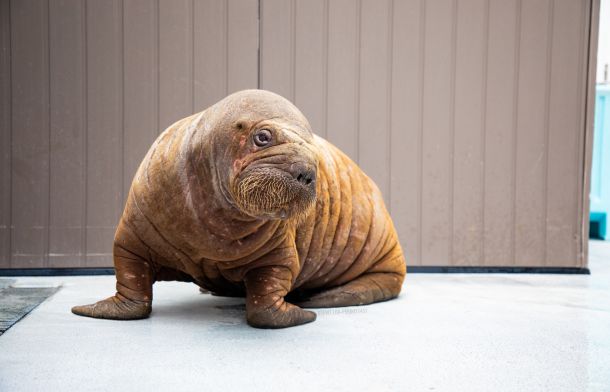
The cooperative effort offers this baby walrus her best chance at survival while also aiding efforts to highlight climate action and ecosystem preservation. Dr. Wei Ying Wong, ASLC President and CEO, said, “This one abandoned and rescued walrus calf serves as a vital ambassador for her species, the communities who rely upon them, and the arctic ecosystem. ASLC and our partners are excited to contribute to the broader effort of conserving these magnificent creatures and their ecosystems, including the rich culture and wisdom of the Alaska Native peoples, who have been here since time immemorial.”
You can get updates on the progress of this baby Pacific walrus by visiting the ASLC Facebook and Instagram pages. You may also check any partnering social media accounts for updates. They will fill your feeds with adorable clips like the baby snuggling in for the night.
Rescue operations like the joint effort to save this baby walrus are essential. While it may seem inconsequential (it is only one baby walrus), the future of our planet depends on maintaining an effective ecosystem with all our flora and fauna. Please share this to spread the joy.
Kaiti Grant | Alaska SeaLife Center provided the featured image.
Want to be happier in just 5 minutes a day? Sign up for Morning Smile and join over 455,000+ people who start each day with good news.

